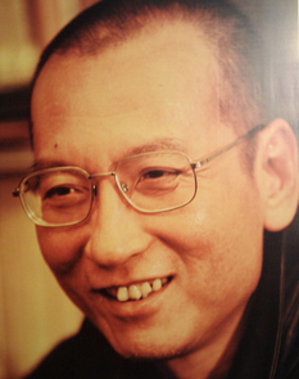The Nobel Committee has made a brave decision, a decision in line with the spirit of the testament of Alfred Nobel. A Prize to the writer and human rights defender Liu Xiaobo highlights the fight for democracy at the Tiananmen Square in 1989 and the following fight for civil and political rights in the People´s Republic of China.
NHC says it is important to shed light on the serious and widespread human rights violations taking place in the People´s Republic of China.
Charter 08, initiated by Liu and others and signed by 303 Chinese intellectuals, propagates free elections, rule of law, f reedom of religion and of association. The prize underscores how important human rights are as a basis for reconciliation and peace building efforts.
reedom of religion and of association. The prize underscores how important human rights are as a basis for reconciliation and peace building efforts.
Human rights defenders are working under difficult conditions and are under increasing pressure by authoritarian authorities in many corners of the world. By awarding the Nobel Peace prize to Liu Xiaobo the Nobel Committee encourages the brave human rights activists, first and foremost in the People´s Republic of China, but also elsewhere.
Liu Xiaobo – ‘a subversive criminal’
According to Lauren Davis, Liu Xiaobo is treated as a subversive criminal in the People´s Republic of China, currently serving an 11-year sentence for incitement to subvert state power.
“In the long run, it’s a good thing,” says Rebecca MacKinnon, expert on internet censorship in the People´s Republic of China and fellow at the New America Foundation.
“It shows that people who stand up for their beliefs will not simply disappear into prison to be forgotten by the world. The tens of thousands who signed Charter 08, some of whom were questioned by police or disciplined by employers for having done so, will be encouraged that they’re on the right side of history and that their risk wasn’t a wasted effort,” added MacKinnon.
While the award will highlight the increasingly harsh treatment of dissidents in the People´s Republic of China and support the struggle for freedom of speech, there are fears that international support for human rights activists may lead to a backlash.
Isabel Hilton, leading expert on the People´s Republic of China and trustee of Free Word, told Index: “Judging by the government’s response, it is not going to make Liu Xiaobo’s life any easier, but when the history of free expression and freedom of ideas is written, he and the other signatories of Charter 08 will be remembered as courageous citizens who sought the best for their country.”
Background
Now 54, Liu was a young university professor at the time of the Tiananmen Square massacre of 1989. He left his post at Columbia University to join the pro-democracy movement in Beijing, and held a hunger strike in support of the students.
As an advocate for non-violent activism, he disarmed a group of workers who had arrived with guns to defend the protesters, and helped to evacuate the square on the last day of the demonstrations, preventing further bloodshed. Liu was arrested for his involvement in the protests, and spent two years in prison.
the protests, and spent two years in prison.
After criticising China’s one-party system and calling for dialogue between the Chinese government and the Dalai Lama of Tibet, Liu was sentenced to three years of “re-education through labour” in 1996. He had only recently married Liu Xia, who was not allowed to visit him for 18 months because they had not managed to obtain a marriage certificate before his imprisonment. Eventually, their lawyer won them dispensation to marry in the labour camp.
In 2004, Liu Xiaobo wrote an essay attacking the use of “subversion” charges to censor, and ultimately silence, journalists and activists. Following the essay’s publication, Liu’s telephone lines and internet connections were blocked.
After nearly 20 years of activism came Liu’s most famous contribution to the campaign against human rights abuses — and the one for which he has been punished most severely — Charter 08. The manifesto, published on the 60th anniversary of the Universal Declaration of Human Rights, called for reform and democracy in the People´s Republic of China, and was signed by 303 Chinese intellectuals.
On 9 December, the night before the document’s release, police arrested Liu at his home in Beijing. They confiscated his computer and other materials from the campaign. He was held in detention with no outside communication until 31 December, when his wife was finally allowed to visit him.
After Liu’s arrest, almost all of the original signatories were interrogated in an attempt to gather evidence against him, but his trial lasted only a day.
HRH Oslo, based on Norwegian Helsinki Committee and Index on Censorship information (see original articles here and here).
Related links:
Writer Yu Jie ignores threats of prison to publish a book about Chinese Premier
China: Dissident writer’s health declining
Fearless Mexican bishop receives the 2010 Rafto human rights award
China: son of Uyghur activist Rebiya Kadeer tortured in prison, call for action


